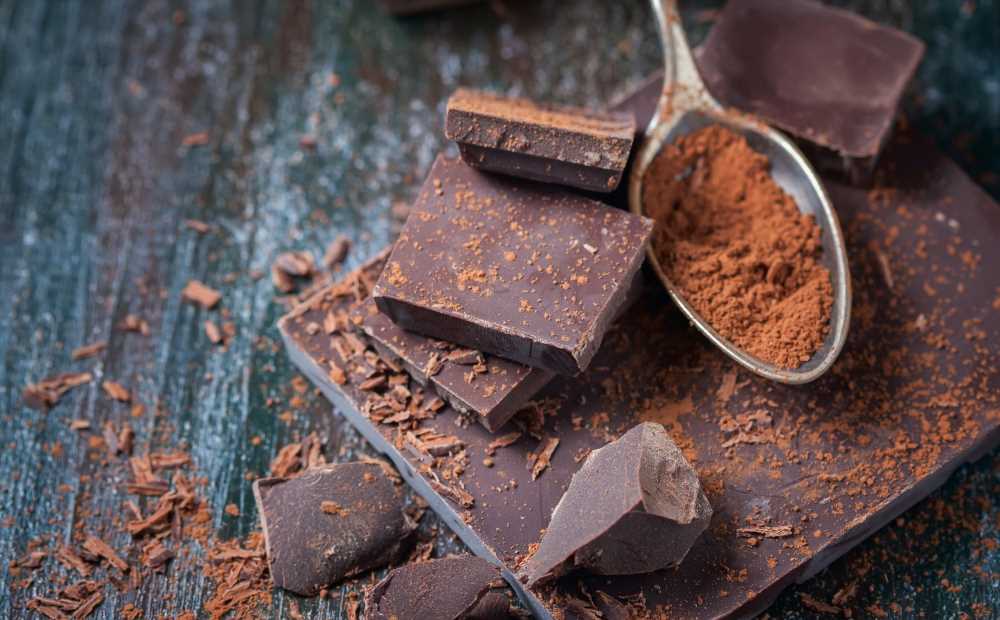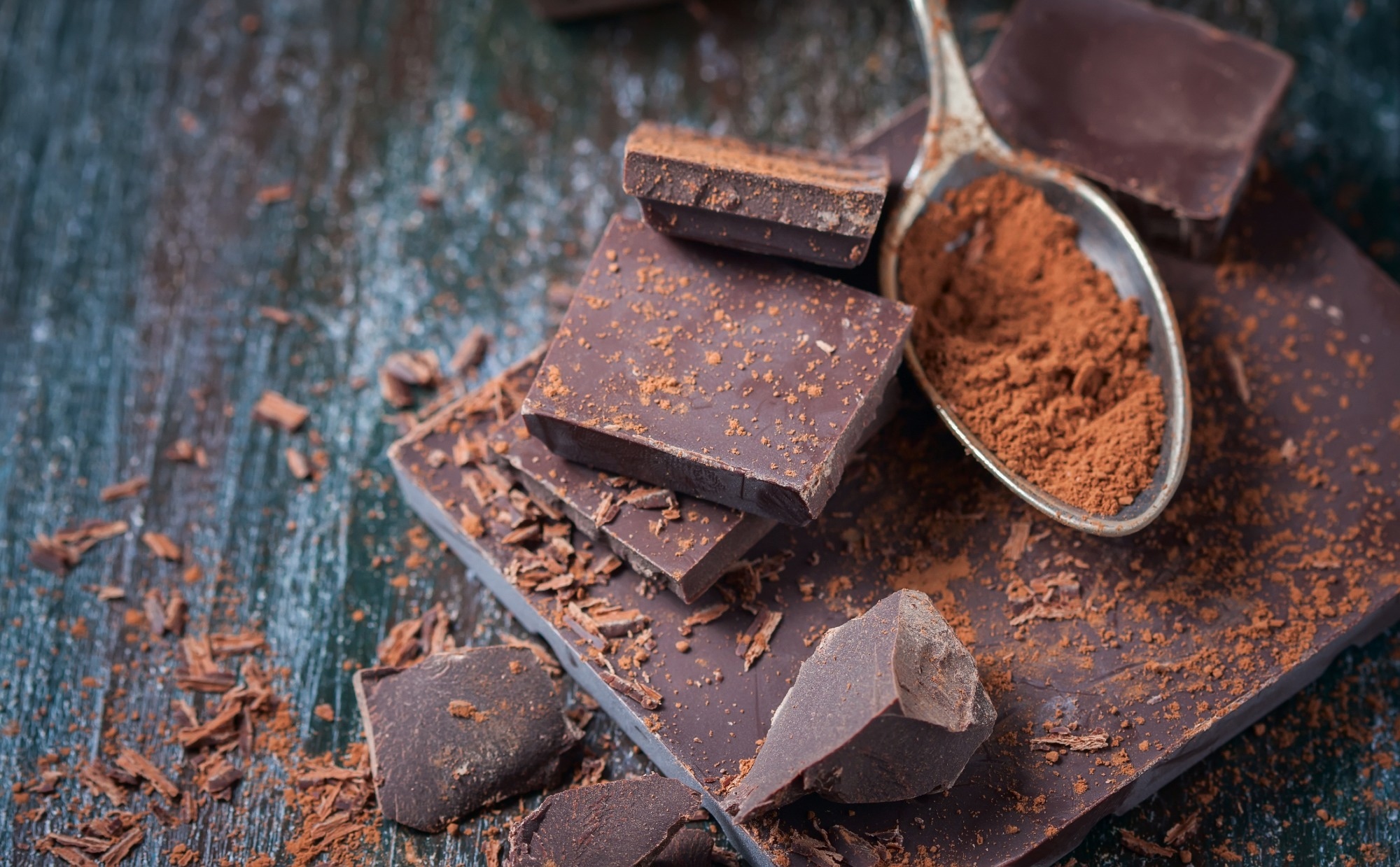

In a randomized controlled study published in the Nutrients Journal, researchers from Italy investigated the effect of cocoa polyphenols on intestinal permeability induced by intensive physical exercise in elite male football athletes.
They found that 30 days of cocoa intake led to decreased intestinal permeability in the athletes consuming dark chocolate compared to controls.
Further, polyphenol extracts were found to restore the barrier damage induced in human intestinal mucosal cells in vitro.
 Study: Dark Chocolate Intake Positively Modulates Gut Permeability in Elite Football Athletes: A Randomized Controlled Study. Image Credit: Gulsina/Shutterstock.com
Study: Dark Chocolate Intake Positively Modulates Gut Permeability in Elite Football Athletes: A Randomized Controlled Study. Image Credit: Gulsina/Shutterstock.com
Background
The gut barrier is a multi-layered, selective structure that enables nutrient absorption from the gut and restricts the entry of toxins, pathogens, and antigens into the bloodstream.
Several factors, including nutrition, medications, diseases, oxidative stress, and physical damage, are known to affect the gut barrier and induce intestinal permeability, but the role of exercise remains unclear.
While low-to-moderate exercise is reported to influence the gastrointestinal tract positively, vigorous exercise and training are shown to induce intestinal permeability. Although appropriate nutrition strategies help mitigate exercise-induced gut permeability, the effect of antioxidants such as polyphenols on gut permeability is not thoroughly investigated.
Therefore, in the present study, researchers aimed to study the degree of gut permeability in elite athletes and assess the utility of polyphenol-rich dark chocolate supplements in reducing gut permeability.
About the study
The study participants comprised 24 elite male football players of mean age 17.2 (± 0.7) years who underwent regular intensive training and 23 amateur male athletes of mean age 30.2 (± 4.6) years who practiced mixed sports other than football.
The first investigation phase was a cross-sectional study in which gut barrier integrity was compared between the two groups using three blood biomarkers, namely lipopolysaccharide (LPS), zonulin, and occludin.
In the second phase, the 24 elite athletes were randomized and supplemented for 30 days with 40 g of dark chocolate daily and a normal diet. On the contrary, the control group only consumed a normal diet.
The commercially available dark chocolate tablets used in the study contained >85% cocoa solids, fat-reduced cocoa, cocoa mass, cocoa butter, vanilla, and sugar.
They contained polyphenols at a concentration of 799 μg gallic acid equivalent/mL, with epicatechin (0.65 mg/g) and catechin (0.26 mg/g). The levels of LPS, zonulin, and occludin were determined at the baseline and on day 30 in the fasting blood samples of the participants.
To further understand how cocoa-derived polyphenols clinically affect gut permeability, in vitro studies were conducted. Caco-2 human intestinal cells were treated either with a vehicle or cocoa-derived polyphenols for an hour before stimulation with E.coli-derived LPS.
To assess barrier damage, zonulin was measured in conditioned media, and occludin expression was detected using a Western blot. Oxidative stress was determined by measuring the concentration of soluble NOX2-derived peptide (sNOX2-dp) and H202 in the supernatant.
Statistical analysis involved using the Shapiro-Wilk test, unpaired t-test, Mann–Whitney U test, and the estimation of Spearman’s rank correlation coefficient, mean, median, and interquartile range.
Results and discussion
In the observational study, the gut permeability markers were significantly higher in elite athletes than in amateurs. LPS, zonulin, and occludin levels were also found to be correlated.
In the interventional phase of the study, at the end of 30 days, the control group showed significantly higher levels of LPS (p<0.001), zonulin (p<0.001), and occludin (p=0.003) as compared to baseline. However, in the elite athletes consuming dark chocolate, no significant difference was observed in the levels of these markers at day 30 vs. baseline.
Further, when the marker levels were compared between the two groups, significantly lower values of LPS (p<0.001), zonulin (p<0.05), and occludin (p<0.001) were observed in the chocolate-consuming group as compared to the control group.
In the in vitro phase of the study, LPS stimulation was found to induce barrier disruption in CaCo-2 cells, as indicated by increased zonulin levels. It decreased occludin expression as compared to untreated cells.
However, pre-treatment of the cells with cocoa-derived polyphenols showed the restoration of barrier damage, as indicated by reduced zonulin levels and increased occludin expression. Further, treating cells with polyphenols was also found to reduce oxidative stress, as characterized by reduced sNOX2-dp and H2O2 levels.
However, the study is limited by its indirect measurement of gut permeability through biomarkers, lack of inclusion of female athletes, and the significant difference in age between the control and test groups.
Conclusion
The study findings suggest that high-intensity exercise is associated with higher levels of markers of gut permeability as compared to moderate exercise.
To ensure optimal performance and health in athletes undergoing intensive training, it is crucial to identify noninvasive strategies that effectively reduce exercise-induced gut permeability.
The interventional and in vitro evidence obtained from this study shows that long-term supplementation with polyphenol-rich dark chocolate can potentially be beneficial in restoring exercise-induced intestinal damage in football players.
-
Nocella, C., Cavarretta, E., Fossati, C., Pigozzi, F., Quaranta, F., Peruzzi, M., De Grandis, F., Costa, V., Sharp, C., Manara, M., Nigro, A., Cammisotto, V., Castellani, V., Picchio, V., Sciarretta, S., Frati, G., Bartimoccia, S., D’Amico, A. and Carnevale, R. (2023) Dark Chocolate Intake Positively Modulates Gut Permeability in Elite Football Athletes: A Randomized Controlled Study, Nutrients MDPI. doi: https://doi.org/10.3390/nu15194203. https://www.mdpi.com/2072-6643/15/19/4203
Posted in: Medical Science News | Medical Research News | Miscellaneous News
Tags: Blood, Butter, Chocolate, Diet, Exercise, Fasting, Gastrointestinal Tract, in vitro, Nutrients, Nutrition, Oxidative Stress, Polyphenol, Stress, Supplements, Toxins, Western Blot

Written by
Susha Cheriyedath
Susha has a Bachelor of Science (B.Sc.) degree in Chemistry and Master of Science (M.Sc) degree in Biochemistry from the University of Calicut, India. She always had a keen interest in medical and health science. As part of her masters degree, she specialized in Biochemistry, with an emphasis on Microbiology, Physiology, Biotechnology, and Nutrition. In her spare time, she loves to cook up a storm in the kitchen with her super-messy baking experiments.